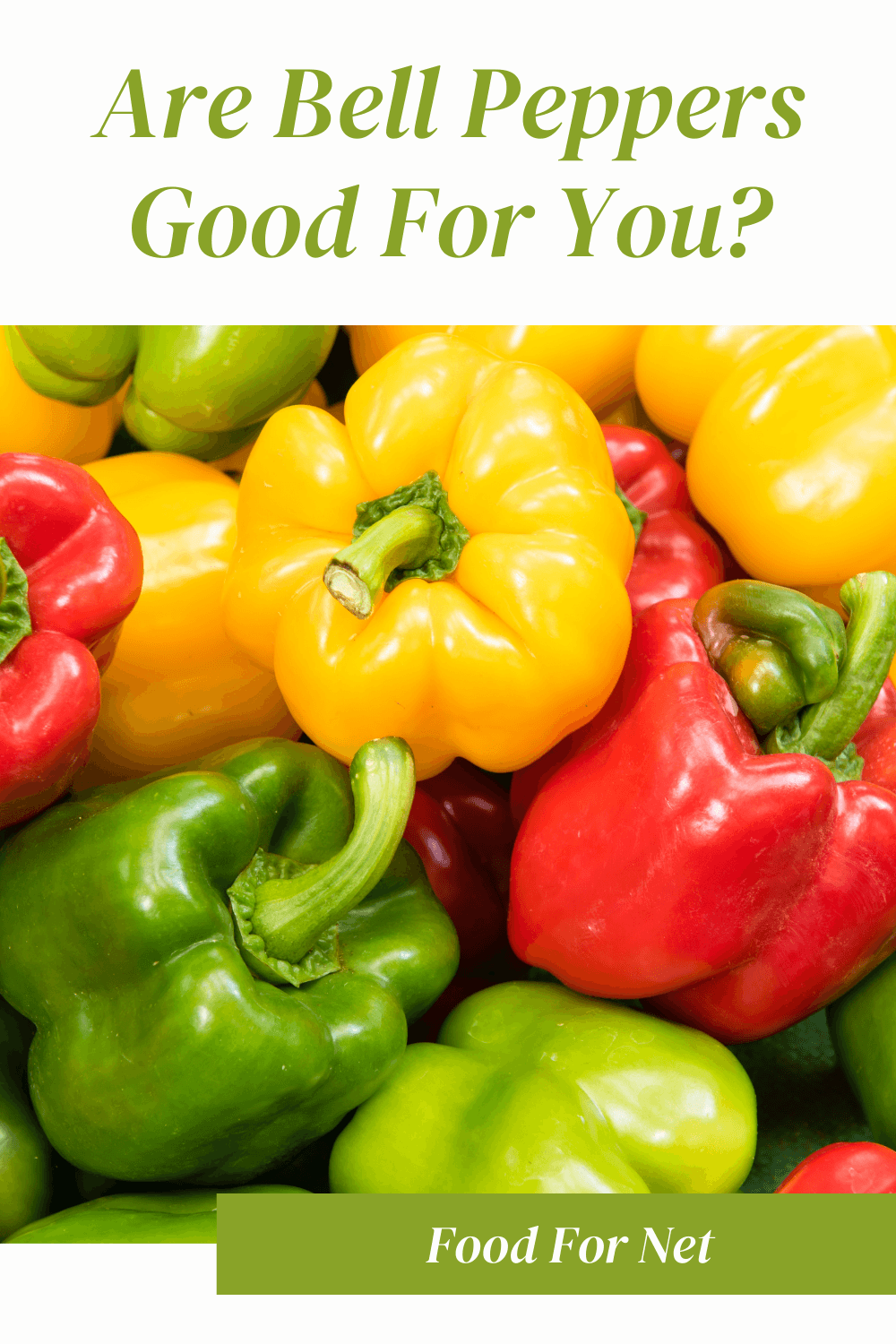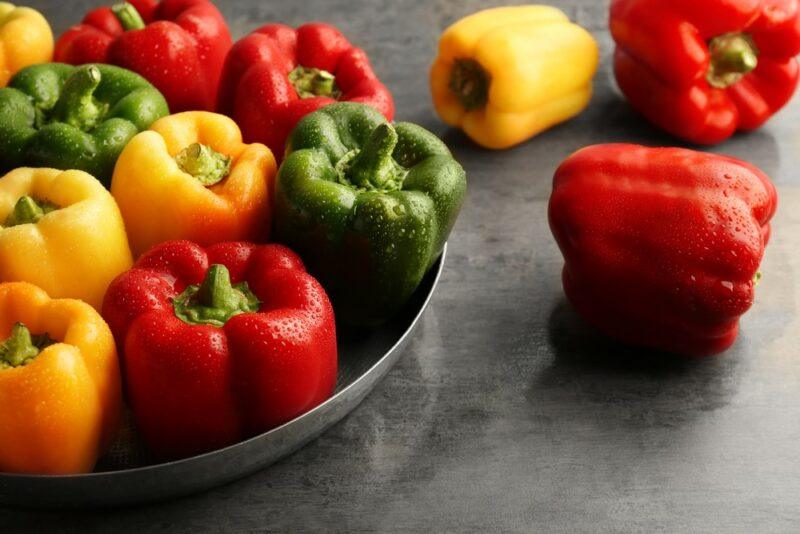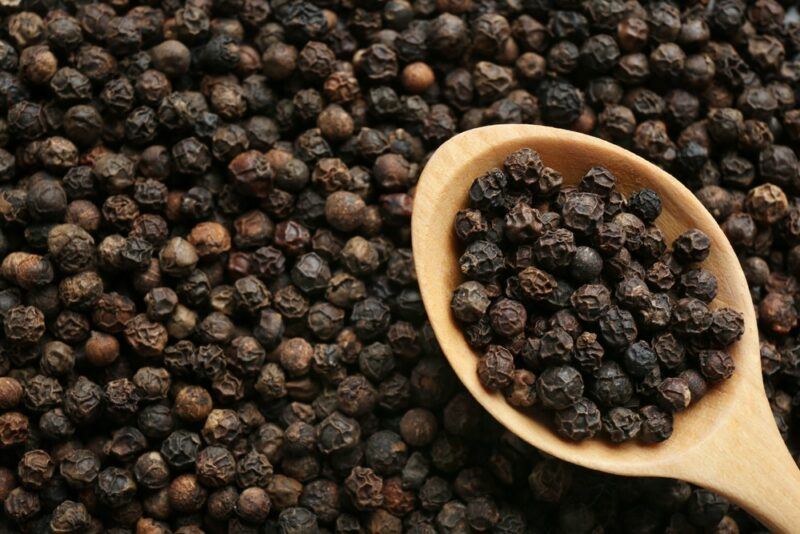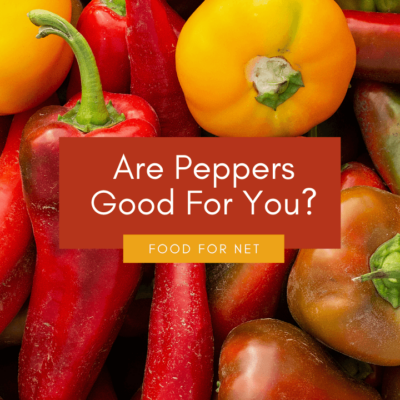
Bell peppers are bright, vibrant, and delicious. They’re much more than that too, as they are low in calories, contain antioxidants, and provide you with an array of nutrients. The peppers are also versatile. They can be cooked or eaten raw, cut up to use in a stir fry, stuffed and baked, or used in countless recipes. What’s not to love The question for today is, are bell peppers good for you?
You might assume they are, but it’s still worth running down the different benefits and risks because foods often have unexpected features.
For example, some fruits and vegetables are high in FODMAPs, including blackberries and apples. While high FODMAP foods are fine for most of us, they can cause significant problems for people with IBS. And, that’s just one type of complication. There are plenty of other potential issues, so let’s see how bell peppers stack up.
Are Bell Peppers Good For You?
- Benefits Of Bell Peppers
- How Bell Peppers Could Be Harmful
- Differences Between Types Of Bell Peppers
- Are Bell Peppers Healthier Than Hot Peppers?
- Are Bell Peppers Related To Black Pepper?
- Final Thoughts
Benefits Of Bell Peppers

Provide Important Nutrients
Let’s start with nutrients because what could be more important than these? In particular, a cup of chopped red pepper provides:
- 317% of your daily vitamin C needs
- 93% for vitamin A
- 22% for vitamin B6
- 17% for folate
- 12% for vitamin E
- 9% for folate
- 9% for potassium
There are other nutrients too, in smaller quantities, like niacin, iron, magnesium, zinc, and manganese. Each of these nutrients has a host of roles in your body, keeping everything ticking along as it should. For example, vitamin C helps with your immune system, while vitamin B6 has roles in your energy metabolism.
The vitamin C content is also seriously impressive, especially as bell peppers are relatively low in sugar and are a versatile ingredient.
The nutrient composition varies somewhat depending on the type of pepper that you choose. We’ll highlight some of those differences later. For now, just know that red peppers tend to be the most nutritious type.
Provide Antioxidants
Just as important as nutrients are the antioxidants in peppers. As you’re probably aware, antioxidants are plant-based compounds that help to decrease oxidation throughout your body.
This effect may protect your cells from damage and reduce the risk of some diseases. Indeed, antioxidant rich diets are often linked to improved health outcomes and few issues.
With all the research and potential benefits, antioxidants seem to be powerful indeed. But, don’t go running to buy antioxidant supplements. Those aren’t effective at all and could even put you at risk. Instead, you’ll get the most benefits by taking the old-fashioned approach and relying on antioxidant rich foods, including bell peppers.
Low In Calories
Here’s another cool thing – bell peppers are low in calories. That cup serving we talked about, for example, contains less than 50 calories. Impressive, right?
You might not be using a full cup of the pepper at a time anyway, which cuts the calorie content down still further.
Low calorie ingredients are always powerful, as they’re an easy way to add nutrients into your diet, without worrying about your waistline. Bell pepper is particularly good in this regard, as it contains such a good array of nutrients and antioxidants.
They’re A Fantastic Low Carb Ingredient

Bell peppers are relatively low in net carbs, making them an excellent choice for a low carb diet. For example, a medium red bell pepper contains around 5 net grams of carbs.
That might sound like a lot if you’re following a keto diet, but remember that you might just be eating half a bell pepper or even less in a serving. You can drop the carb content down still further by focusing on green bell peppers.
Green peppers are immature versions of red peppers. They haven’t been on the vine as long, so they haven’t had the time to fully ripen. They’re cheaper than red peppers too, which makes them even more appealing.
A Decent Source Of Water
Like many vegetables, bell peppers are naturally water rich. In fact, they’re more than 90% water, which is excellent news for hydration.
This is a surprisingly important effect. While we’re generally getting the water we need to survive, many of us don’t drink enough water each day and end up mildly dehydrated.
Mild dehydration presents with symptoms like thirst, muscle cramps, a headache, and a dry mouth. The symptoms can be subtle, but they’re a clear sign that you need more water – and water rich vegetables are an easy way to increase your fluid intake.
Low In FODMAPs
FODMAPs are fermentable carbs that can make symptoms worse for people with irritable bowel syndrome and similar conditions. Being sensitive to FODMAPs can involve avoiding many foods. Thankfully, bell peppers are a safe option.
In fact, red bell peppers don’t contain any FODMAPs at all. They’re also the sweetest type and can be used in plenty of ways.
Other types of bell pepper are low in FODMAPs too. The main exception is green bell peppers, but even here, the amounts aren’t incredibly high. You can actually have roughly half a green bell pepper on a low FODMAP diet, which is probably all you need in a serving anyway.
How Bell Peppers Could Be Harmful

Can Be Difficult To Digest
Delicious as bell peppers are, they’re not that easy to digest. The problem is the fibrous skin, which our bodies struggle to break down. This effect is strongest for raw bell peppers, particularly green ones, as green peppers aren’t fully ripe.
Thankfully, there’s an easy way around the problem – remove the skin before you use the pepper. This might be frustrating at first, but can decrease side effects from peppers, particularly if you’re eating raw green peppers.
Pay attention to your body too. If you’re struggling to digest peppers, you’ll see side effects like gas and stomach cramps. These are a sure sign to slow down with your peppers.
They’re Nightshades
All kinds of peppers, including bell peppers, fall into the category of nightshade vegetables. You’ve probably heard that term before, as nightshades tend to be controversial.
The vegetables are most significant for people with autoimmune conditions or irritable bowel syndrome. In both cases, the alkaloids found in nightshade vegetables could make symptoms of the condition worse. There are also other situations where people have removed nightshade vegetables from their diet and found that their health has improved.
It’s difficult to know whether nightshade vegetables actually cause health problems or not. The scientific evidence for this effect is incredibly limited, which implies that nightshade vegetables aren’t an issue at all.
However, studies often struggle to detect nuanced effects, especially as there are so many differences from one person to the next. It’s entirely possible that nightshades do cause issues for some people and that research simply hasn’t caught up to reality yet.
Because of this, people with autoimmune conditions might choose to cut nightshade vegetables out. The best approach is to remove them from your diet for a while and slowly reintroduce them. Doing so can help you to see whether the vegetables are having any negative effects.
Differences Between Types Of Bell Peppers

Bell peppers come in a surprising array of colors. Green, yellow, and red are the most common types, but you’ll also see brown, purple, orange, and even white bell peppers.
These types have many of the same properties. They’re all low in calories and offer some vitamin B6 and iron, along with various other nutrients. There are slight flavor differences, with red bell peppers being the sweetest (as they are fully ripe).
Antioxidant Differences
The biggest difference between the peppers, however, is in the antioxidant content. We talked about antioxidants and their benefits earlier.
What’s often missed, however, is that plants contain a variety of antioxidant compounds that have different effects in our bodies. Some are better antioxidants than others, while some are more notable for their other effects in our bodies. The antioxidant balance changes from one fruit or vegetable to the next, so the health effects change as well.
Antioxidants are often pigment molecules, so the antioxidant balance also changes for different colored fruits and vegetables. For example:
- Red peppers are rich in capsanthin and beta-carotene. Beta-carotene is known not just as an antioxidant, but also for its ability to help with your skin and eyes.
- Green peppers contain barely any capsanthin, yet are surprisingly powerful at reducing some types of oxidation.
- Purple peppers have been less heavily researched, but are likely to be rich in anthocyanins, which are particularly powerful antioxidants, the type that you also find in blueberries.
Pepper Types And Digestion
The length of time that peppers have been on the vine influences how easy they are to digest. If you struggle to digest peppers, then red ones are often the best choice, as they’ve been on the vine for longer.
Green peppers were picked much earlier, so they’re less ripe and harder to digest. Yellow and orange peppers fall somewhere in the middle. Unfortunately, while purple peppers look amazing, they’re often not fully ripe either.
The Nutrient Content
Nutrient composition also varies with the color of your pepper. For example, the vitamin C content is highest in yellow peppers, followed by red ones. Vitamin A levels, on the other hand, are highest in red peppers.
Most of the time, red peppers will be the best choice, offering more folate, potassium, and vitamin A than most other types. They contain plenty of antioxidants too and are fully ripe, making them the easiest type to digest.
Are Bell Peppers Healthier Than Hot Peppers?
Bell peppers, other sweet peppers, and spicy peppers, all come from the same species, so they have many properties in common. The biggest difference is simply the spiciness.
There are many concerns about spicy foods, including ideas that they cause stomach ulcers and add too much heat into your system. Yet, research suggests the opposite. The capsaicin in chili peppers, which is the compound that makes them spicy, is associated with a variety of benefits.
This could mean that the spicier the pepper is, the more benefits it offers (within reason). And, interestingly enough, capsaicin doesn’t increase your risk of stomach ulcers. The compound may even help to protect you.
That said, hot peppers are only a healthier choice if you can tolerate them. While hot peppers don’t tend to cause health problems, they can make existing issues feel worse, contributing to heartburn and irritable bowel syndrome symptoms.
Are Bell Peppers Related To Black Pepper?

We’ve left one obvious entry out of this discussion – black pepper. The reason is simple, black pepper isn’t related to sweet peppers and spicy peppers at all.
In particular, the pepper we use as a spice comes from the species Piper nigrum, while peppers all come from the Capsicum genus instead.
There isn’t much similarity between black pepper and capsicum peppers at all, aside from the names and the way that black pepper and spicy peppers both have some heat to them.
Black pepper does offer plenty of health benefits, but we’ll discuss these in a separate post, as they’re quite different from the benefits that you find with bell peppers.
Final Thoughts
Bell peppers are more than just a delicious versatile ingredient. They also very relevant for your health. Plus, they’re low in calories, so it’s easy to include them in pretty much any diet.
The main thing to think about is the color that you choose. Red peppers are often the best, as they’re the easiest type to digest and contain more nutrients. However, they’re also higher in sugar than other colors, which can be a problem if you’re following a low carb diet.
Not that you need to stick with just one color anyway. If you’re using peppers in a salad or a recipe, you might use multiple types to get an interesting balance of colors and flavors.
Frequently Asked Questions
Are Bell Peppers Keto Friendly?
Bell peppers can work well for keto, as a medium red one only comes in at 5 net grams of carbs (green peppers are even lower in carbs). Besides, most of us don’t eat a whole bell pepper in a serving. You’re probably consuming half or even a quarter of the pepper at a time, which drops the carb content down still further.
Can You Eat Bell Peppers Raw?
Raw red peppers are entirely safe and many people eat them regularly. That said, some people find peppers difficult to digest – an effect that is stronger when you eat them raw.
If you do get side effects from bell peppers, try cooking them. You can also remove the skin. While doing so is frustrating, the skin is the hardest to digest part of a bell pepper, so removing it can make a huge difference.
Also try focusing on red peppers, rather than green ones. Because red peppers are riper (they’ve been on the vine longer than green bell peppers), they’re generally easier to digest.
How Long Do Bell Peppers Last?
The USDA says that raw bell peppers are best used within 5 days. However, many people find that if you keep them in the crisper drawer of your fridge raw peppers often last between 1 and 2 weeks.
That timing is just for whole bell peppers though. Their shelf life decreases once you cut into them and you’ll often have just a few days to use bell pepper pieces. Similarly, cooked bell peppers tend to last between 3 and 5 days in the fridge.
Are Bell Peppers Low FODMAP?
Bell peppers tend to be low in FODMAPs, particularly if you focus on red bell peppers. Green bell peppers aren’t as good, but you can still consume half a green bell pepper on a low FODMAP diet. That should be enough for most recipes.
Are Bell Peppers Spicy?
Bell peppers aren’t spicy at all. They don’t even produce the capsaicin compound that’s found in spicy peppers. All you get is a little sharpness when you bite into the pepper, but even this decreases once your bell pepper is cooked.






 Is Lemon Juice Good For You?
Is Lemon Juice Good For You?
Leave a Reply